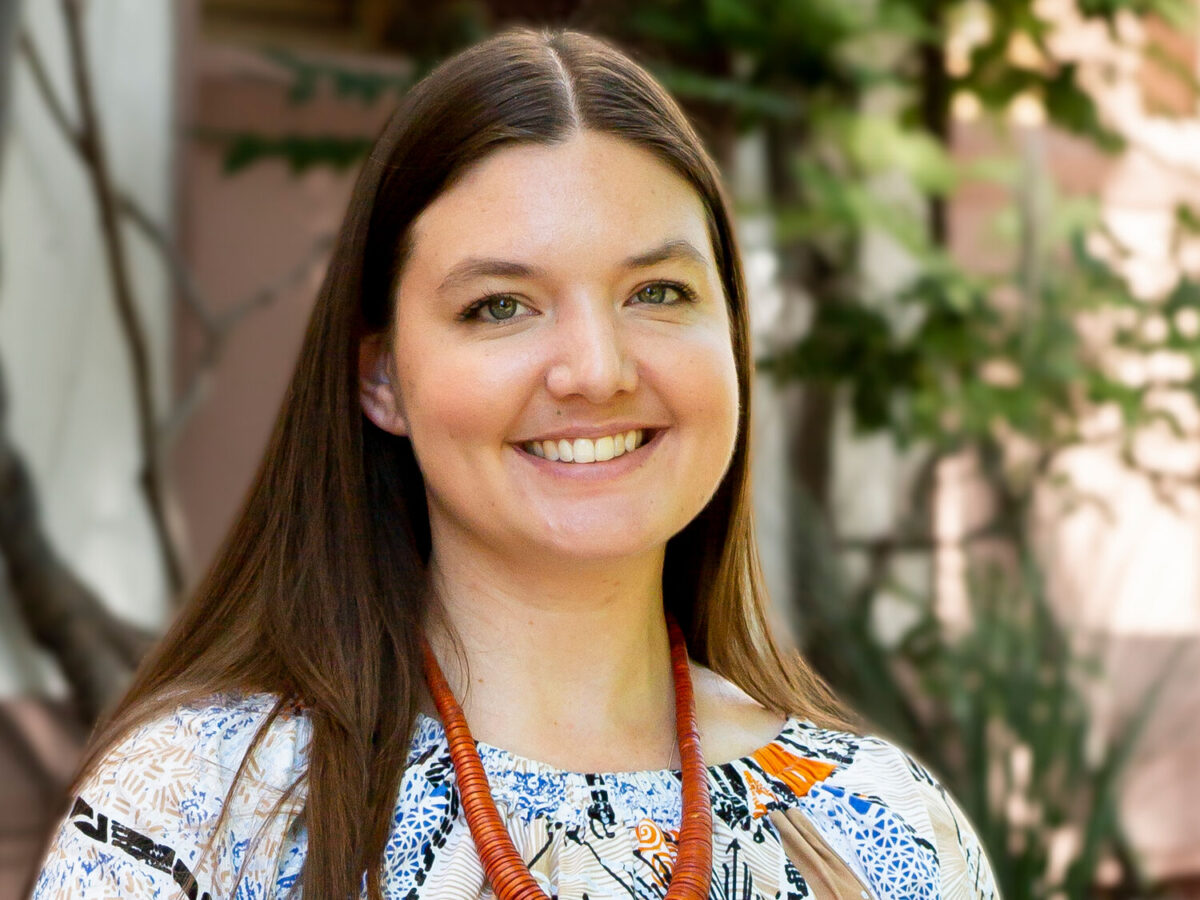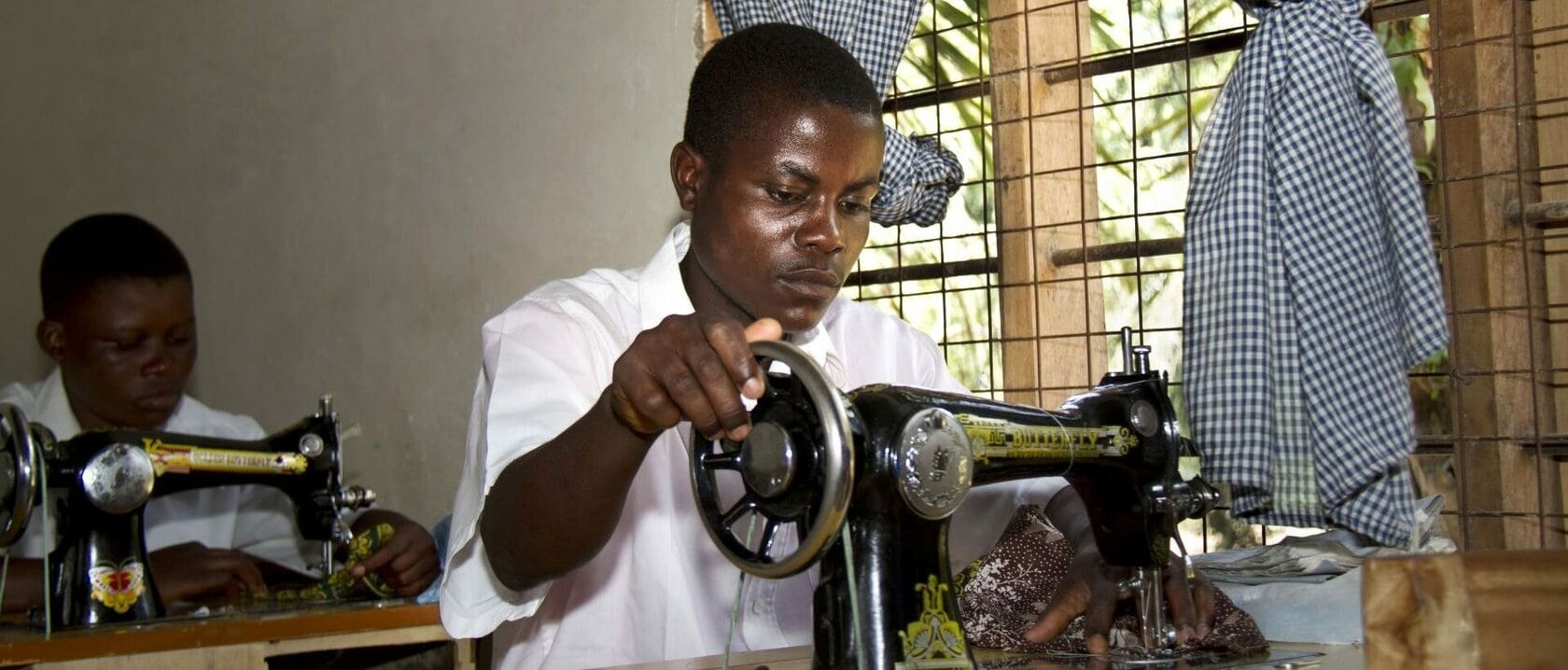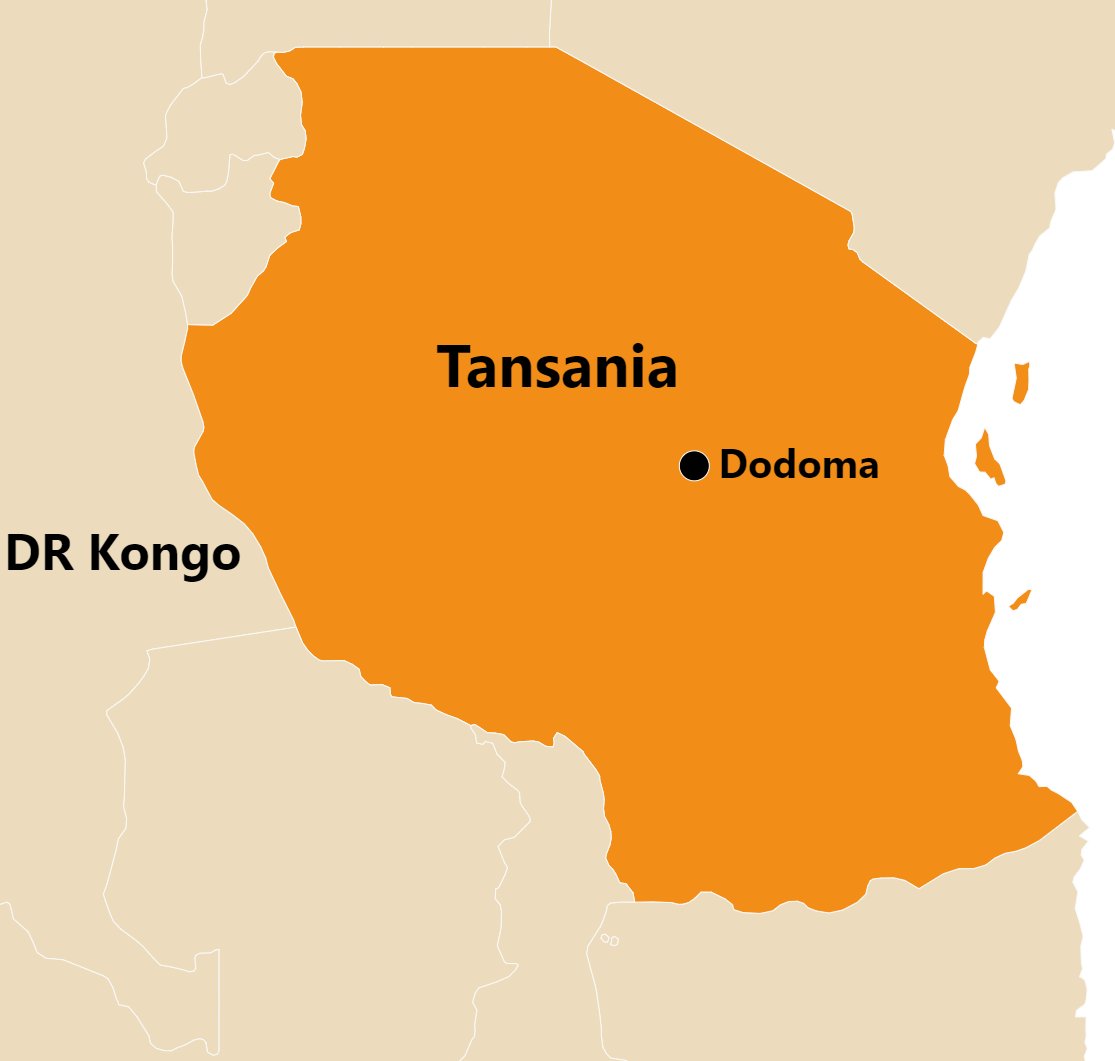
Adrienne Sweetman
Coordinator Tanzania

Paid work and incomes that secure livelihoods are rare in Tanzania in view of the poor economic situation. Young people in particular suffer from a lack of prospects and unemployment. Many women have no opportunity for education or professional advancement. In many cases, they are trapped in traditional roles and have little say in society. People with disabilities are particularly disadvantaged, often stigmatized and excluded from educational opportunities. To address these issues, Mission 21's partner churches, the South and Southwest Provinces of the Moravian Church in Tanzania (MCT), are engaged in inclusive vocational training. Through education and also further training, vulnerable young people are also given real opportunities to earn their own living and find a way out of poverty and dependency.
Over 50 percent of the Tanzanian population are children and young people under the age of 18. The majority of them grow up in poverty. Their educational opportunities and career prospects are limited and their chances of leading an independent life are slim. The situation of many women is particularly problematic. Girls have to help in the household and in the fields from an early age. Only a few girls are able to complete secondary school. People with disabilities are also usually excluded from education and social participation. Sometimes they are hidden away by their families. There is a lack of suitable support. Mission 21's two partner organizations are committed to the education of young people, including young people with disabilities. In vocational training centers in Kyela, Chunya, Isongole, Rungwe, Namtumbu, Songea, Ilindi and in the city of Mbeya, young people can complete vocational training. In addition to job-specific skills, they are also trained in life skills, violence and HIV prevention. Particularly vulnerable groups (e.g. young women, orphans or young people with disabilities) receive support in the form of scholarships.
Overall Objectives:
The skills of particularly vulnerable youth are strengthened so that they can independently secure their livelihoods, lead independent lives with dignity, and actively contribute to society and the local economy.
Subgoals:
Young people, including orphans, as well as women and their families from the Mbeya region. Each year, the projects reach around 750 young people in vocational schools, including 40 trainees with disabilities. The target group also includes 45 teachers at the training centers and training seminars.
In 2024, the training courses at the vocational schools also helped to combat rising youth unemployment and poverty in the project region. Over 710 young people were able to complete practical, high-quality and state-recognized training at the partner organizations' vocational training centers. This enables them to find employment after graduation or to work as self-employed people and earn their own living. In the schools in Mbeya, Kyela and Chunya, classrooms have been renovated or newly built. In Mbeya, ramps and paved paths were built so that students in wheelchairs can also reach the classrooms. 136 students who completed their training were also given work equipment along with their certificates: Sewing machines for tailors or toolboxes for those completing electrical or carpentry training. These tools gave the young people an immediate start to independent working life and thus contributed to their economic independence. To ensure the high quality of teaching, numerous teachers also received further training in 2024. Not only in subject-specific matters, but also in teaching methodology and special educational issues. At the vocational school in Mbeya, a teacher from Switzerland supported English, French and sports lessons as part of the PEP program.
Vocational training work will be expanded geographically from 2025. In very rural and remote regions in particular, trainees can be taught in future with the support of Mission 21.

CHF 192'000
Mission 21
Protestant Mission Basel
PO Box 270
Missionsstrasse 21
4009 Basel, Switzerland
Tel.: +41 (0)61 260 21 20
info@mission-21.org
Donation account Switzerland:
IBAN: CH58 0900 0000 4072 6233 2
Tax exemption number:
CHE-105.706.527
Donation account Germany:
Savings Bank Lörrach-Rheinfelden
Swift BIC: SKLODE66
BLZ: 683 500 48
IBAN: DE39 6835 0048 0001 0323 33
Account No. : 1032333